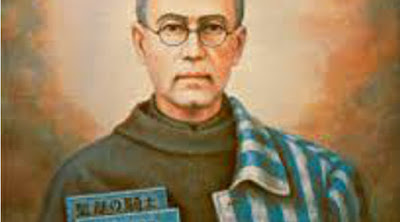We catch small glimpses of it in our daily lives.
After winter has spent its fury, freezing us with its cold breath and hammering us with snow, the spring refreshes us with warm weather and the fragrance of budding trees.
After we have suffered through sickness and feared for the worst, we make it through the treatments and begin to feel healthy again. Our strength is renewed and our hope is revived.
After many hours in the classroom and many late nights studying and writing reports, we finally make it to the day of graduation. All the work up to that point has finally paid off. We receive our diploma, celebrate with our families and look forward to the next chapter in our lives.
In our personal lives, we set goals for ourselves whether to get in shape, land a promotion at work or finally master a musical instrument. We make all the sacrifices necessary to meet our lofty ambitions. It can mean many hours of thankless work. Then the day comes when we have finally reached the goal we set for ourselves. We look back with satisfaction at all that we have achieved and realize that, though it was not easy, it was certainly worth the effort.
All these examples bear out the truth that, if we can persevere through hardships whether it be in nature, in our bodies or in our personal and professional lives, we can be assured that better days lie ahead. It is the hope without which none of us can continue to live, that the best is yet to come.
All these examples, however, are only the smallest shadow of the great feast we celebrate today - the Resurrection of Jesus Christ from the dead. The truth we celebrate today is fathoms deeper than the saying, “no pain, no gain.” It is more than just a recognition of the natural consequences of hard work and perseverance. Rather, it speaks to us of the power and mercy of God.
When Jesus suffered and died on the cross, He was doing more than leaving us an example of bearing with suffering and persecution. Rather on the cross He was taking upon Himself the ancient enemies of humanity - suffering, sin and death. He was doing battle with all the evils we face in life and putting them to death. The Resurrection of Jesus Christ is God’s great act of power and mercy.
How do we experience His Resurrection in our lives today?
First of all, we experience the Resurrection in our lives by the forgiveness of our sins. Saint Peter teaches us in today’s first reading that “...everyone who believes in [Jesus] has forgiveness of sins through His name.” All of us have experienced the shame, discouragement and suffering that come with sin. We have made bad choices and brought pain into the lives of others. With the Resurrection of Jesus, there is hope for us. We can be forgiven. He has taken upon Himself all our sinfulness. We can put our weakness, sin and guilt into His hands and be assured that He will erase it from our conscience through the blood He spilled for us on the cross and the new life He holds out to us in His Resurrection. Jesus, risen from the dead, has conquered sin and offers all of us who turn to Him with real sorrow in our hearts the gift of forgiveness.
Secondly, we experience the Resurrection in our lives through hope in everlasting life. As believers in Christ, we need no longer fear death. It is not the last word on our lives. Rather, because Jesus conquered death, we can be assured of everlasting life if we believe in Him and follow His commandments. Death now is the means by which we enter the inheritance that is ours as sons and daughters of God.
Finally, we experience the Resurrection in our lives through the good works we perform for others. It is natural for us to put ourselves and our needs before others. We fear that if we do not watch out for ourselves, no one else will. However, through the power of Jesus’ Resurrection, we receive power to overcome our selfishness and pride. As we ponder all that He did to save us, we cannot but be filled with the love of God. And that love energizes us to serve others through works of mercy. We put aside our own needs trusting that God will meet them for us and so are open to the work of the Spirit within us calling us to feed the hungry, to visit prisoners and to pray for the needy. All this is a result of the new life that flows into our hearts because of Jesus’ victory over sin.
Today is a day to celebrate Jesus’ victory over sin and death. But it is also a time for us to reflect on how His victory has made a difference in our lives. Are we living with less guilt because of the confidence that we have been forgiven? Are we living with less fear knowing that death has been conquered by Christ? Are we doing more to serve our neighbor motivated by the love that God has shown us? If we are not experiencing these fruits of the Resurrection in our lives, then today is the day to ask God to start working mightily in our lives. He has gone to all this trouble - dying on the cross and rising from the dead - that we can be assured that He will also go to the trouble of making this work a reality in our lives. All we need to do is approach God with humble faith and sincerity, and He will take care of the rest.










